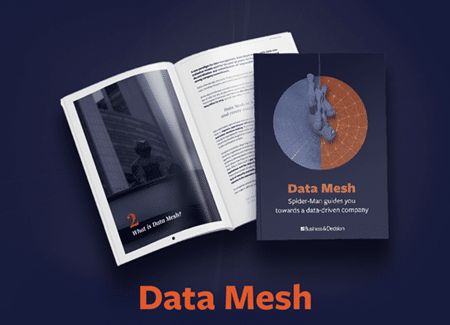We provided in a previous article the definition of Responsive Customer Experience, a new marketing paradigm that allows brands to stand out significantly. However, the challenge lies in managing to take several steps (faster than your competitors) in order to dynamically customise all customer interactions according to their choices, behaviours and objectives. In order to help brands automatically adapt their entire customer experience, we will focus here on company repositories which are still very much underutilised resources…

What do we mean by repositories?
What do we mean by repositories?
Repositories is a central place in which are listed company documents or data with detailed descriptions. For instance:
- Customer repositories where there should be no duplicate customer files and which should be up-to-date and ready for use by one or more applications. Sometimes there is a reference customer record, named golden record, and several other attached customer records having specific identifiers that may have been obtained from different data sources.
- Product repositories with all their characteristics and their different identifiers within several applications (e-commerce, distribution network, production, etc.).
- Marketing documents repositories (photos, videos, sounds, etc.) with their metadata, generally placed in catalogues made available to marketing tools (emails, newsletter, printouts, website, etc.).
Banking on cross-functional repositories
As business environments become more and more complex, repositories should become increasingly cross-functional. For example, the field of marketing and CRM also includes FAQs, content, leads, points of sale (with descriptions, offers and opening hours, which are used a lot by store-locator type tools such as Yext).
These business repositories are often built to centralise their management and ensure quality on the one hand, and to help perform consolidated analyses on the other. For example, when you have a catalogue of unique products, the performance of a product can be measured even if it is distributed under different IDs in several networks. Similarly, photo or demonstration video available on several channels can be measured (e-commerce, in-store, social networks, etc.) can also be measured.
Repository indexing, a crossing point to Responsive CX
But did you know that metadata also plays a critical role in the enhancement of performance analysis that ultimately enables automated customisation?
Let’s take the example of a somewhat long purchasing journey: usually what the brand tries to do is to fuel/nurture the customer’s needs until it manages to convince them to buy. This involves presenting content to them in a more or less customised way: advertising inserts, emails, video or study recommendations (for example: a series of arguments sent by email, a white paper sent in addition to a webinar, etc.).
How to scale up the purchasing journey?
Traditionally, in lead nurturing, Marketing assigns a context and a goal to its content and tries to push it towards customers at the right time. This model works well but does not scale up when variations increase in number.
In the new Responsive Customer Experience paradigm, the brand operates a bit like Netflix does: depending on the customer, the context, the customer’s tastes and the available content. Recommendations must be judiciously made and automatically identified.
Roughly speaking, these automatic recommendations are based either on manually defined rules or on the performance analysis of hundreds, or even thousands, of previous tests (see Machine Learning). A combination of both is also possible.
As regards the second option, which seems to be more popular, the quality of the recommendation depends on the quality of prior content indexing. Does the customer respond better to certain video thumbnails? To specific colours in photos? (Typically, we know that photos of sporting goods or tourist destinations must vary according to audiences, or even according to the geographical locations from which they are being accessed).
Article
Businesses should continue their digital transformation journey despite these times of crisis
See moreValuable data sources must be well prepared
Consequently, content (press articles, blog posts, white papers, YouTube videos, etc.) and marketing documents (in the company’s catalogue) are sources of data, raw materials that must be prepared right now in anticipation of the pervasiveness of recommendation engines:
- Content is everywhere, not just on a single platform, so it must be indexed.
- Just like Netflix or Spotify, there should be intrinsic metadata behind those content.
- When there are clearly identified stages along a purchasing journey (especially with regards to B2B or for purchases that have long cycles), content can also be classified according to their objective (see sales stages). Content must thus be categorised.
- Content must be reusable (even when customised, that would be the holy grail!)
Just for the record, such tasks are already performed by some B2B engagement platforms that allow dynamic content and recommendation customisation according to the individual and/or his(er) company. For example:
· The B2B überflip engagement platform
· The ON24 platform: ON24 | The Digital Experience Platform
Preparing for the widespread use of Machine Learning in digital marketing and digital analytics
To make the shift towards Responsive Customer Experience, brands must therefore anticipate the widespread use of Machine Learning by preparing their internal repositories in such a way that they allow ML to look for relevant correlations. Enriching the repositories with metadata forms is part of this preparation: our data science experts can even explain to you how to initiate a dialogue between data scientists and business functions in order to determine which metadata is relevant.
This internal data is also first party data and is more than likely a forgotten gold mine. In a following article, we shall discuss what data qualifies as zero party data.
















Your email address is only used by Business & Decision, the controller, to process your request and to send any Business & Decision communication related to your request only. Learn more about managing your data and your rights.